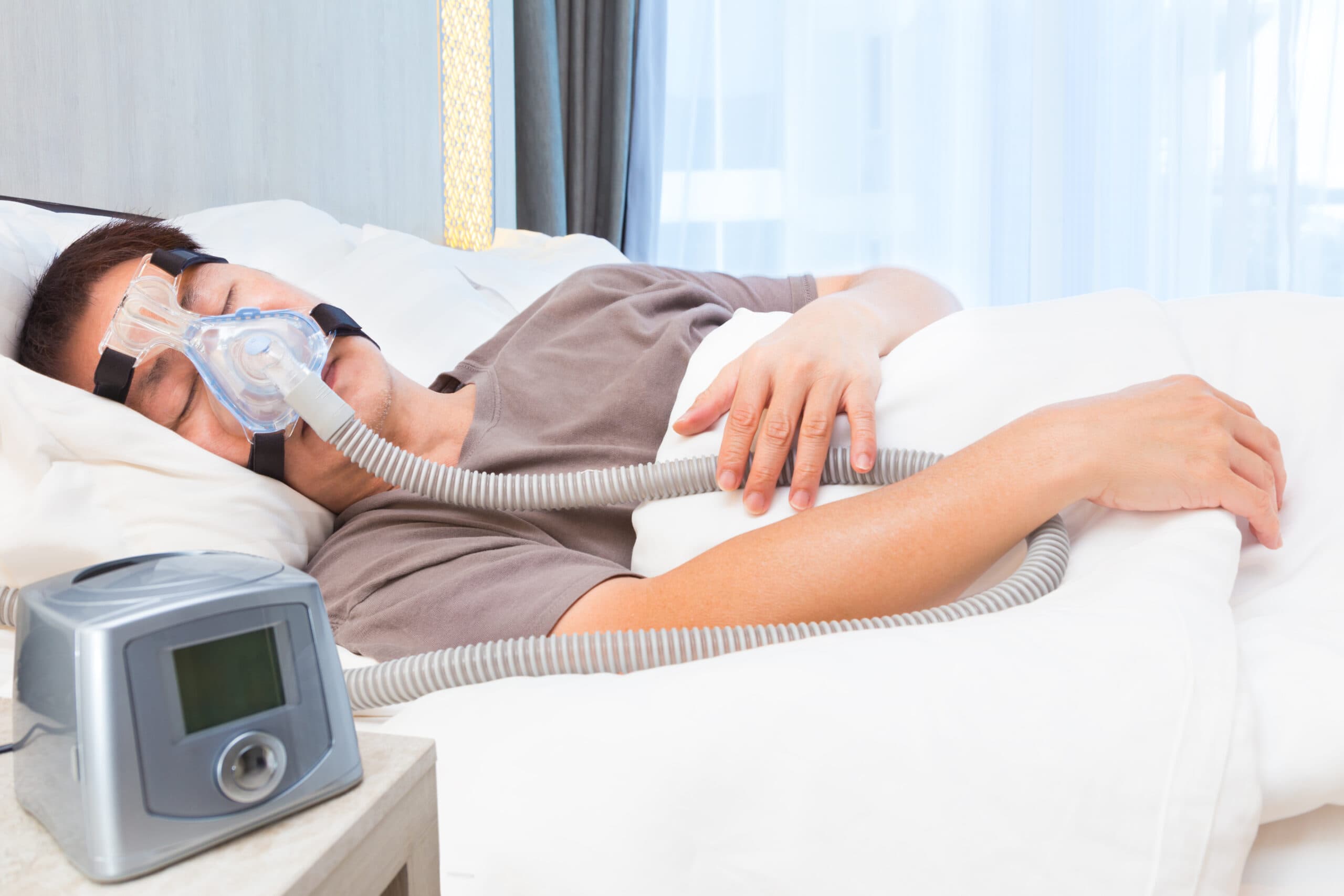

If you have just been diagnosed with a breathing issue due to sleep apnea and have been recommended to use a CPAP therapy in Pakistan. As a beginner, there might be a chance of making errors or having many concerns while using this effective machine. One of the common concerns that most users have is Why does my CPAP pressure feel too high? Especially those struggling with obstructive sleep apnea. It is important to use the right setting because an incorrect setting can impact the effectiveness of the CPAP therapy, which can eventually lead to an impact on your health by posing several side effects.
To receive the impactful benefits of CPAP therapy, such as consistent, uninterrupted breathing at night, you must understand CPAP machine settings in Pakistan. Also, it is equally important for avoiding conditions like dry mouth, bloating, mask leaks, or difficulty exhaling.
In this article, we will explore high CPAP pressure side effects, how to recognize them, and the safest and effective methods to resolve the issue, including auto CPAP vs fixed pressure CPAP machines. We also discuss how to seek CPAP therapy maintenance in Pakistan, get help from a sleep clinic for CPAP pressure tests in Islamabad, and adjust your pressure settings properly, as we have included expert advice and guidance. Let us find the answers to some of the common questions, such as how to reduce CPAP pressure at home?, What is the normal CPAP pressure range? And what CPAP settings do doctors recommend? To ensure that you are using this machine properly and getting optimal therapy effectiveness.
To treat effectively, the CPAP machine plays a crucial role by delivering air pressure that is measured in centimeters of water (cmH₂O). Standard machines commonly operate within a range of 4 to 20 cmH₂O. The optimal pressure setting can only be determined through assessment of the patient’s condition. By carefully examining, a healthcare specialist recommends the pressure needed to prevent airway collapse during sleep. Typically, the ideal setting falls between 8 and 10 cmH₂O, but this can vary depending on factors like the severity of sleep apnea and other health factors.
Most CPAP machines in Pakistan deliver air pressure between 4 to 20 cmH₂O (centimeters of water pressure). As already mentioned, the best CPAP pressure for sleep apnea is personalized through a process called titration, typically conducted during a sleep study.
In general, auto CPAP vs fixed pressure CPAP is an important consideration as there is a major difference. Auto CPAP (APAP) machines are considered an advanced machine that are capable of automatically adjusting the pressure based on your breathing patterns, while fixed CPAP machines maintain a single prescribed level throughout the night, which is why it is essential to be careful about settings when using them.
Using high CPAP pressure does not contribute to treating your condition better or alleviating its symptoms. Which is why it is essential to set the pressure as prescribed by your healthcare specialist. Also, you may experience (side effect) one or more of the following:
If you notice these symptoms, you are likely dealing with CPAP pressure problems in Pakistan. It is a sign that you require medical attention. You must consult your healthcare specialist to fix this problem by adjusting your CPAP settings appropriately, so you can experience better therapy by following their recommendation.
Here are some common signs that can indicate that you might be using high pressure:

If you are new to CPAP Therapy and are learning effective ways to reduce CPAP pressure at home properly, you first need to understand that it’s not recommended to adjust pressure levels yourself (should always be done under medical supervision), however, some safe techniques and tools can help in making your therapy more comfortable:
If you are a beginner, it is recommended to start your therapy at a lower pressure, so that your body can get used to it gradually.
Most of the advanced CPAP machine offers innovative solutions, for example, they are equipped with features like EPR. This feature reduces pressure during exhalation, making it easier to breathe out.
A good solution if you are still struggling with pressure discomfort is to opt for ResMed CPAP pressure adjustment in Pakistan, as it is highly reliable, especially if you’re using models like AirSense 10 or AirSense 11. APAP machines automatically adjust the pressure based on your needs, potentially reducing the risk of feeling uncomfortable due to excessive pressure.
Always follow a professional guide or seek CPAP support in Lahore/Karachi, or any city where you can easily access a sleep clinic or technician to treat your condition in a better manner.
Sleep clinics can reassess your needs and perform re-titration studies to reset your pressure range for optimal therapy effectiveness.
Deep cleaning filters, checking for mask wear, and inspecting tubing at least once a week can ensure your unit functions optimally.
Before making any changes, it is important first to discuss your symptoms with a sleep specialist. They may recommend effective ways to easily adjust to therapy and can also determine the appropriate pressure setting, which can also lead to achieving comfort during therapy.
An ill-fitting mask can also be a reason for discomfort. Ensure your mask fits well and consider trying different types.
Doctors generally ask patients to avoid starting with high pressure, as they are typically not used to it unless it is necessary due to the severe condition. After reviewing your sleep test, they will recommend the lowest effective pressure for your comfort and ease. For many Pakistani patients, this falls in the 7–10 cmH₂O range.
When choosing a CPAP device, go for a reputable and reliable brand that focuses on offering pressure flexibility, such as:
When purchasing, ensure the machine supports EPR, Ramp, and has service availability in your city.
We offer 24/7 delivery of oxygen concentrators, CPAP/BiPAP machines, and hospital beds.
Emergency delivery available anytime
Quick setup and installation
Get professional advice and support.